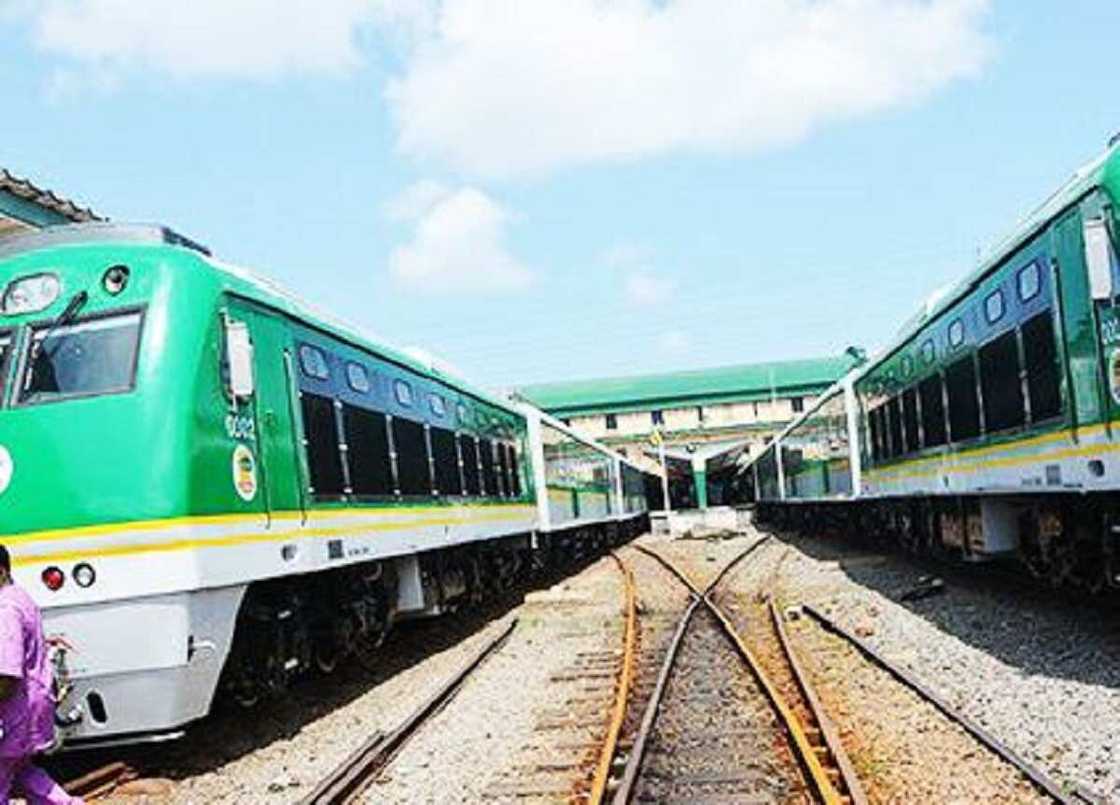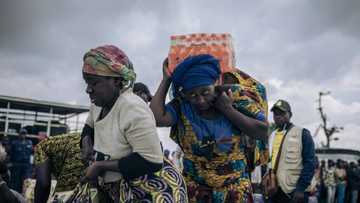Nigerians reduce patronage of train transportation, further decline predicted
- Only 422,393 passengers travelled via train in Nigeria in the second quarter of 2022.
- Revenue generated in the period drastically dropped to about N598.74 million from N2.07 billion in the first quarter.
- Until insecurity is properly tackled, we will continue to witness a decline in the patronage of rail transportation, a security expert has said.
422,393 passengers travelled via train in Nigeria in the second quarter of 2022. This is a low of about half a million (530,706) compared to the 953,099 that travelled via train in the first quarter of 2022.
This was disclosed in the rail transportation statistics released by the National Bureau of Statistics (NBS)
The data showed that even though the first quarter figure showed a growth rate of 124.54% from 424,460 reported in the corresponding quarter of 2021, the second quarter of 2022, marked a decline of about 25.29% when compared to the 565,385 that travelled via train in the second quarter of 2021.

Source: UGC
PAY ATTENTION: Subscribe to Digital Talk newsletter to receive must-know business stories and succeed BIG!
Revenue generation from train transportation
While N2.07 billion was generated from passenger travel in the first quarter of 2022, the amount drastically dropped to about N598.74 million generated in the second quarter of this year. This is even a far cry from N892.46 million, N1.08 billion, N1.81 billion and N1.90 billion generated in the first, second, third and fourth quarters of 2021
Why the decline in train passengers?
Abuja-Kaduna train attack: It would be recalled that the Abuja-Kaduna rail operation which is one of the most used routes by train passengers was suspended after terrorists bombed the train along with some rail installations. In the course of the unfortunate incident, hundreds of passengers including men, women and children were kidnapped and held hostage for up to 5months
The Nigerian Railway Corporation had attempted to resume operation a few months after the attack but was however condemned by the families of the victims who cried out that it was insensitive to do so when their loved ones were yet to be rescued from captivity.
Even though all the hostages have now regained freedom, Fidet Okhiria, managing director of the NRC stated that operations will only resume when the safety of train passengers and railway infrastructure are guaranteed on the route.
General insecurity: Due to security concerns, the NRC also reduced the number of trips on the Lagos-Ibadan route to four, and Itakpe-Warri route to two. The Abuja-Kaduna rail route is not the only route that has come under security concerns. There was an attempted kidnapping of passengers at the Ajaokuta Station some time ago. The Lagos-Kano route was also suspended following reports of suspected presence of bandits along the Minna to Kaduna rail corridor.
A rail passenger, Angela Okuma told Legit.ng that the excitement of travelling via rail diminished since the Abuja-Kaduna train attack and other reports of insecurity along various routes. She said:
Most of us were very excited about rail transportation, especially for the comfort and speed it affords. But since the March attack and kidnap of passengers of the Abuja-Kaduna train, I have been very afraid. When I saw the videos of how the hostages were being tortured, it made me even wearier of road and rail transportation as a whole. I'd rather save enough for a flight or remain where I am.
Rise in diesel price: The rising cost of diesel is one of the reasons why train passengers declined in the second quarter of the year. Diesel price rose to as high as N800 per litre forcing the NRC to increase fare for most of the routes. This situation forced passengers to either suspend their trips of take up alternative means of transportation.

Read also
Dangote set to borrow N112 billion from Nigerians to complete refinery project, full repayment date in 10yrs
Speaking on the challenges of rail transportation, Uja Anumaka, a security expert, told Legit.ng that patronage of train transportation will further decline if the issues of insecurity is not checked. He said;
The insecurity in the country has really heightened and a lot of people are afraid to move from one place to the other regardless of the means of transportation. The fear before used to be bad roads and accidents, but today, the fear is more about kidnappers and bandits. Until insecurity is properly tackled, we will continue to witness a decline in the patronage of rail transportation.
Insecurity has expanded from road to rail transportation, impacting negatively on the government's revenue from railway operations. Unless this challenge is intentionally tackled, the revenue will continue to slide downward.
However, the FCT Minister, Muhammed Bello, during a briefing of State House correspondents two months ago disclosed that the federal government has approved the sum of N718 million has been approved for security services and surveillance of the Abuja Light Rail Mass Transit System.
While we hope for exploits by the military in tackling insecurity and restoring confidence in the minds of the public, more security contracts would be needed to suffice in other routes.
Source: Legit.ng




